
How ZMA Can Boost Your Immune System
Wondering how to boost your immune defences and fight against illness? Discover the science of ZMA and how it can help your immune system.

In the quest for maintaining your prime, the significance of a well-balanced, nutrient-dense diet cannot be overstated.
It is the cornerstone of optimal health, acting as your body’s primary source of essential nutrients.
Among a seemingly endless list of healthiest foods, some stand out, particularly for men’s health. They offer the healthy monounsaturated fats, omega 3 fatty acids, dietary fiber, and all the nutrients your body needs, playing a pivotal role in protecting against heart disease, maintaining healthy bones, and even aiding in weight loss.
As you aim to lower cholesterol and blood pressure, reduce your risk factors for cardiovascular disease, or even focus on weight loss, incorporating our healthiest foods for men into your daily diet will make a difference. They are more than just foods; they’re weapons against chronic conditions, low testosterone and potential health setbacks.
Our journey starts with one of the most nutrient-dense foods- packed with essential amino acids, vitamin E, and vitamin C.
So, gentlemen, ready to explore these powerhouse foods and elevate your health to new heights?
Stay with us as we delve into the healthiest foods for men.

Vitamins A, C, K, and Iron
Salad, smoothie, steamed
Leafy green vegetables such as spinach, kale, and collard greens are some of the most nutrient-dense foods on the planet. They are loaded with Vitamins A, C, and K, along with several other essential nutrients.
Vitamin A plays a crucial role in maintaining skin health and vision, Vitamin C acts as an antioxidant protecting the body against oxidative stress, and Vitamin K is pivotal for blood clotting and bone health.
Notably, the iron content of leafy greens aids in promoting adequate levels of red blood cells, which carry oxygen to the body’s tissues. This is particularly beneficial to men, who generally have higher iron needs than women.
Moreover, a study published in the journal Neurology suggests that eating green leafy vegetables could help slow cognitive decline, making these a powerhouse for men’s health.
Incorporating these foods into your diet can also help lower blood pressure and reduce cardiovascular risk factors, contributing to your overall heart health. They are a versatile addition to any meal, whether in a salad, a smoothie, or as a tasty side dish steamed with a touch of olive oil and garlic. Leafy greens, truly, are a superfood for men striving to stay in their prime.
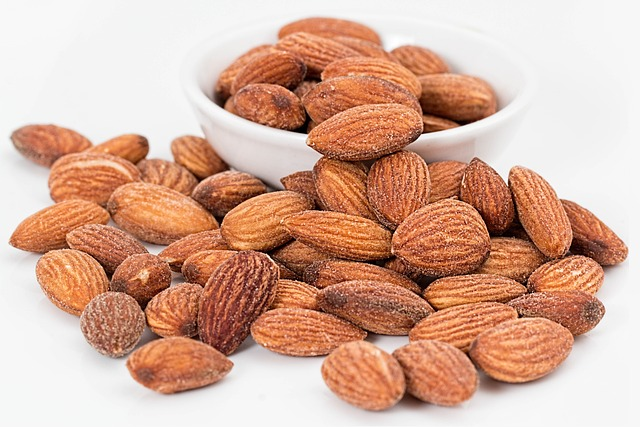
Healthy Monounsaturated Fats, Vitamin E, Magnesium
As a snack, in smoothies, salads, or yogurts
A handful of almonds pack a potent nutritional punch. They are rich in monounsaturated fats, the heart-healthy fats that can help lower bad cholesterol levels, reduce the risk of heart disease, and control blood sugar (source).
These healthy fats, combined with dietary fiber present in almonds, can also contribute to a feeling of fullness, which can support weight loss efforts.
In addition, almonds are an excellent source of Vitamin E, an antioxidant that can help protect the body against the harmful effects of free radicals and boost the immune system. This is particularly crucial for men, as robust immunity can help maintain overall health and wellbeing.
Moreover, almonds are high in magnesium, a mineral vital for maintaining muscle function and supporting a healthy nervous system. Almonds can be enjoyed in various ways. You can have them as a quick snack, include them in your smoothies, salads, or even sprinkle them over your yogurt for an added crunch and nutritional boost.

Antioxidants, Vitamin C, Vitamin K, Fiber
In smoothies, on top of cereal, as a snack
Blueberries are small but mighty when it comes to their nutritional value. They are packed with antioxidants, which can help protect the body from free radical damage and boost overall health. The high antioxidant content in blueberries has been linked with a reduced risk of chronic conditions like heart disease and cancer (Source).
Blueberries are also an excellent source of vitamin C and vitamin K. Vitamin C plays a vital role in maintaining skin health, boosting immunity, and promoting cardiovascular health. Vitamin K, on the other hand, plays a critical role in blood clotting and maintaining bone health.
In addition to their robust vitamin content, blueberries are high in soluble fiber. Dietary fiber can help regulate the digestive system, control blood sugar levels, and support weight loss efforts by promoting a feeling of fullness.
Blueberries can be incorporated into your diet in many ways. They are great in smoothies, as a topping for your breakfast cereal, or simply as a refreshing snack throughout the day.

Omega-3 Fatty Acids, Protein, Fiber, Magnesium, Vitamin E
As a snack, in salads, in oatmeal
Walnuts are a nutritional powerhouse, especially beneficial for men. They are one of the few plant-based sources of omega-3 fatty acids, which are crucial for heart health, reducing inflammation, and supporting brain health.
In particular, they contain a specific type of omega-3 fatty acid called alpha-linolenic acid (ALA), which has been associated with lower cardiovascular risk factors.
Walnuts are also an excellent source of protein, an essential nutrient for muscle recovery and growth. And they’re rich in fiber, helping you feel full and aiding in digestion. Additionally, walnuts contain magnesium, a mineral that supports hundreds of enzymatic reactions in the body, including energy production and muscle function.
Finally, walnuts are a rich source of vitamin E, an antioxidant that helps protect your cells from damage. Some research suggests that vitamin E might also support prostate health, which is particularly crucial for men (Source).
Walnuts are a versatile food that can be included in your already healthy diet, in numerous ways. Enjoy them as a snack, toss them into your salad for a crunchy bite, or add them to your morning oatmeal for extra protein and heart-healthy fats.
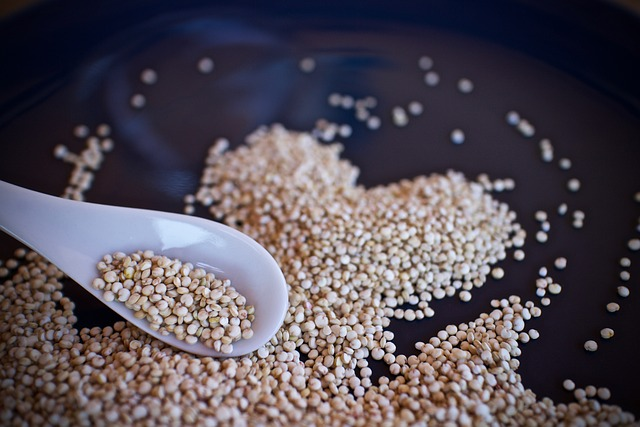
Protein, Fiber, Magnesium, Phosphorus, Manganese, Folate, Copper
In salads, as a side dish
Quinoa, a gluten-free grain, is renowned for its high nutrient content. It is one of the few plant-based sources that offer all the essential amino acids, making it a complete protein. This property makes quinoa an excellent choice for men seeking to build or maintain muscle mass.
In addition to protein, quinoa is rich in fiber, which can support digestive health and aid in weight management by promoting feelings of fullness. The grain is also an excellent source of magnesium, which plays a role in over 300 enzymatic reactions within the body, including metabolism and protein synthesis.
Quinoa is also rich in phosphorus, essential for bone health; manganese, which plays a role in the regulation of brain and nerve function; and folate, which is necessary for the body to make DNA and other genetic material. It also has high levels of copper (source), a trace mineral that helps with the formation of collagen, increases the absorption of iron, and plays a role in energy production.
You can enjoy quinoa as a side dish, add it to your salads for some extra crunch and protein, or use it in soups for added texture and nutrients.
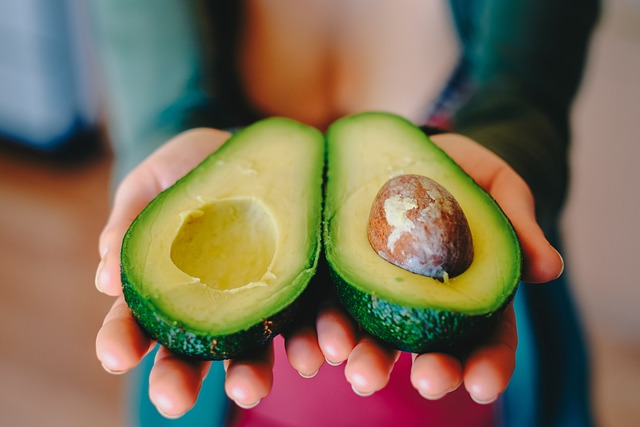
Monounsaturated fats, Vitamin K, Fiber, Vitamin C, Potassium
Guacamole, avocado toast, salads
Avocados are a unique fruit due to their high content of healthy fats — primarily monounsaturated fats. These fats are known for their heart-health benefits, including the ability to lower bad cholesterol levels, which may decrease the risk of heart disease, a prevalent issue for men (source).
In addition to heart-friendly fats, avocados are rich in fiber. This nutrient is critical for maintaining a healthy digestive system and can help you maintain a healthy body weight. The high fiber content, combined with the monounsaturated fats, can also keep you feeling satisfied longer, which is beneficial for weight management.
Moreover, avocados are a good source of vitamin K, vital for blood clotting and bone health; vitamin C, which supports the immune system; and potassium, which can help lower blood pressure. They even have more potassium than bananas!
You can enjoy avocados in a variety of ways — from the classic guacamole and avocado toast to adding them in salads or smoothies for an extra boost of nutrients.
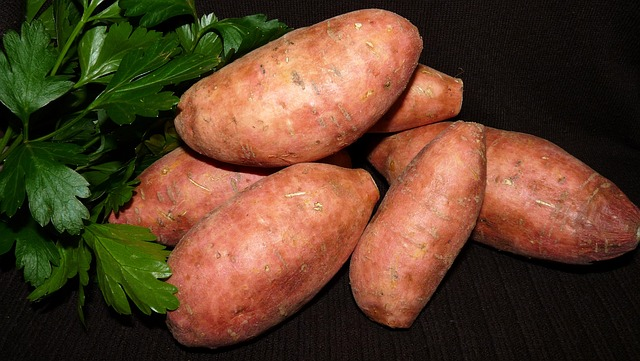
Vitamin A, Vitamin C, Manganese, Fiber, Potassium
Baked as a side, Steamed vegetables, Roasted
Sweet potatoes are among the most delicious and nutritious foods you can eat.
They are incredibly rich in vitamin A, providing more than 400% of your daily need in a single medium spud. Vitamin A is crucial for your vision, growth and development, and immune function.
In addition to being loaded with vitamins and minerals, sweet potatoes are a good source of fiber, promoting a healthy digestive system and making you feel fuller for longer, thus assisting with weight management.
Moreover, they are high in antioxidants that help protect your body from free radicals, which are harmful substances that can cause cell damage.
A versatile ingredient, sweet potatoes can be baked and served as a side, steamed and added to salads, or even roasted and used in hearty, warming dishes.
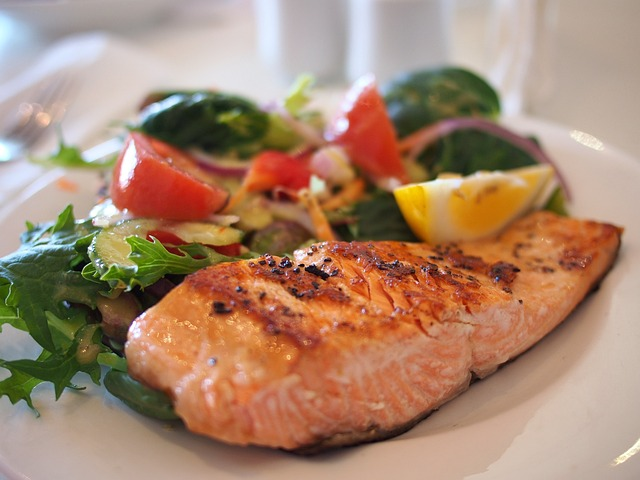
Omega-3 Fatty Acids, High-Quality Protein, Vitamin D
Grilled, Baked, In a salad
Fatty fish like salmon, trout, and mackerel are packed with essential nutrients, and can be especially beneficial for men’s health. They are a rich source of Omega-3 fatty acids, which have been linked to a reduced risk of heart disease, depression, and dementia.
Omega-3s are essential for brain health, and eating fatty fish can help keep your mind sharp. These fats are also good for your heart. They’ve been shown to lower blood pressure, reduce blood clotting, decrease stroke and heart failure risk, and reduce irregular heartbeats (source).
Moreover, fatty fish is one of the few natural sources of Vitamin D, which many people lack in their diets. Vitamin D plays a significant role in maintaining healthy bones and teeth, and it may also protect against a range of conditions such as cancer, type 1 diabetes, and multiple sclerosis.
Enjoy fatty fish grilled with a squeeze of fresh lemon, baked with herbs, or flaked over a salad for a hearty, nutritious meal.
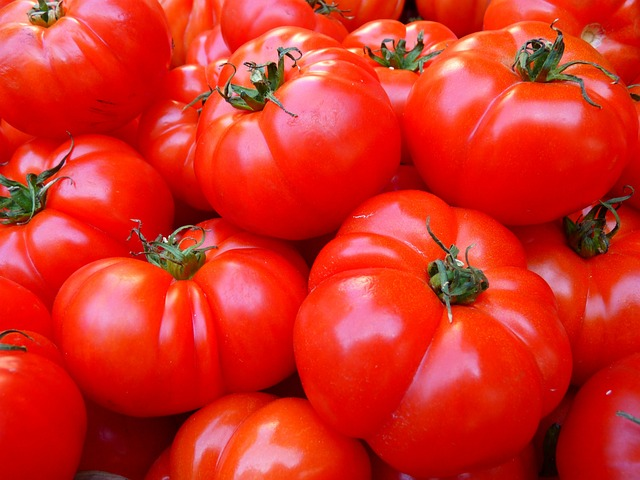
Vitamin C, Potassium, Lycopene
Salads, Soups, Salsa
Tomatoes are a superfood when it comes to men’s’ health benefits. They are loaded with vitamin C, which is important for immune system function and skin health.
Moreover, tomatoes are one of the best sources of lycopene, a powerful antioxidant that has been linked to a reduced risk of prostate cancer (source), one of the most common cancers in men. Lycopene is absorbed more efficiently by the human body, when tomatoes are cooked, so consider adding cooked tomatoes or tomato sauce to your meals.
Lastly, they also provide potassium, which plays a key role in nerve function, muscle control, and blood pressure regulation.
Tomatoes can be incorporated into your diet in numerous ways, such as in salads, soups, or as a base in a homemade salsa.
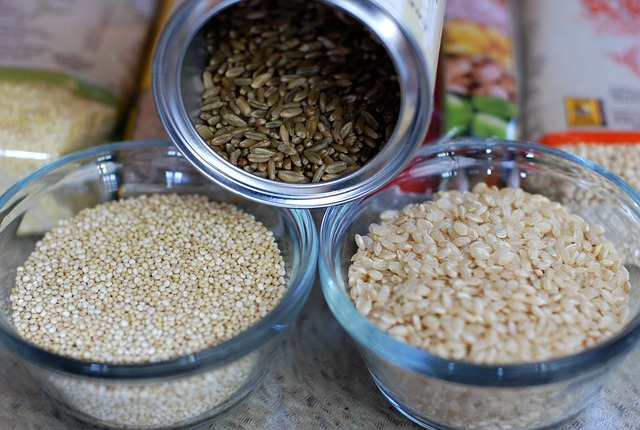
Fibre, B Vitamins, Iron, Magnesium
Bread, Cereal, Rice Dishes
Whole grains are packed with nutrients that are beneficial for men’s health. They are a great source of dietary fiber which aids in digestion, helps maintain a healthy body weight, and can lower the risk of heart disease.
In addition, whole grains provide B vitamins, iron, and magnesium. These nutrients play crucial roles in energy production, oxygen transportation in the blood, and muscle function respectively.
Studies have also shown that consuming whole grains can lower the risk of chronic conditions like type 2 diabetes and cardiovascular disease, two conditions that men are particularly susceptible to (source).
From whole grain bread for breakfast to brown rice in your dinner dish, these nutrient-dense foods are easy to incorporate into your daily diet.
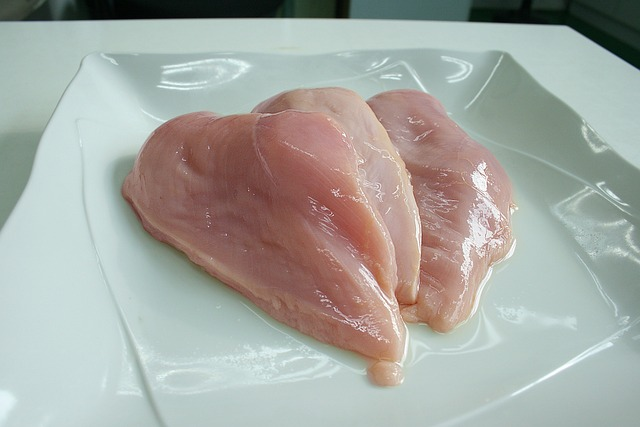
High-quality protein, Vitamin B12, Iron, Zinc
Grilled or roasted with herbs and spices
Lean meats such as chicken breast, lean beef, and turkey are protein powerhouses, providing essential amino acids that your body needs to build and repair tissues. A high protein intake can also help you maintain a healthy body and lose weight by keeping you feeling satiated and boosting your metabolism.
In addition to protein, lean meats are a great source of Vitamin B12, a nutrient that’s crucial for brain health and the formation of red blood cells, and that can only be found in animal foods.
Iron is another nutrient abundant in lean meats, particularly in beef. Iron is essential for carrying oxygen in the blood, and men who consume complete protein with adequate iron may have a lower risk of anemia (source).
Lastly, lean meats are high in zinc, a mineral that’s essential for testosterone production and thus crucial for men’s health.
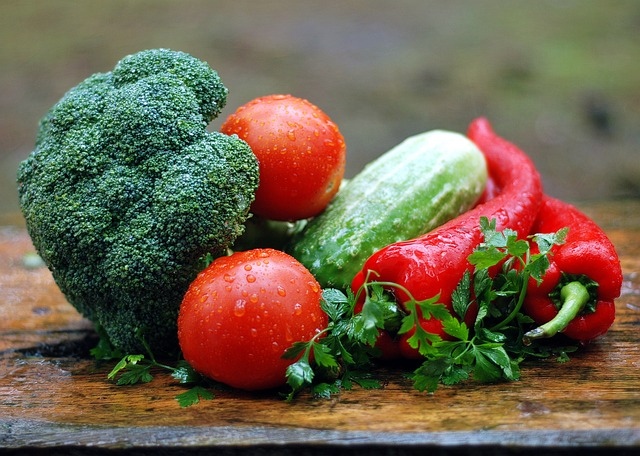
A superfood is a nutrient-rich food considered to be especially beneficial for health and well-being. They are packed with vitamins, minerals, and antioxidants. Foods like leafy green vegetables, fatty fish, blueberries, and sweet potatoes are all examples of superfoods.
Deep-fried foods, sugary drinks, processed meats, and foods high in trans fats and artificial additives are generally considered some of the unhealthiest foods. These can lead to a variety of health problems like obesity, heart disease, diabetes, and more.
While there’s no single “healthiest” food, a balanced diet that includes a variety of nutrient-dense foods like fruits, vegetables, lean proteins, and whole grains is the key to good health. Incorporating healthy foods from our list of 11 healthiest foods for men into your daily diet is a great way to boost your nutrient intake.
Foods that are low in calories but high in fiber and protein can help with weight loss. This includes foods like leafy green vegetables, lean meats, quinoa, and tomatoes. These foods can help you feel full for longer and prevent overeating.
Absolutely. A balanced, nutrient-rich diet can have a profound impact on your life. It can boost your energy levels, improve your mood, reduce your risk of various health conditions, improve bone health, and help maintain a healthy body weight. Plus, with the right diet, you can stay in your prime for longer.
Yes, a man’s diet is critically important to his health. Proper nutrition can help prevent a range of health issues like heart disease, stroke, and certain types of cancer. A balanced diet also plays a significant role in maintaining healthy testosterone levels, promoting good sleep, and supporting overall mental health. Supplementing a good diet with our ZMAN+ can provide key nutrients for optimal men’s health.

With these healthy foods already on your plate, you are well-equipped to enhance your health, ensuring you remain in your prime. But don’t stop there. Nutrition isn’t solely about what you eat; it’s also about what you supplement.
That’s where ZMAN+ comes into play.
Our ZMAN+ is a supplement designed specifically for men. It contains zinc, magnesium, vitamin B6, vitamin D3 and boron, compounds that are scientifically proven to support your wellbeing. Supplementing also ensures that you’re getting your daily dose of essentials, even on days when your diet may not be perfect.
ZMAN+ is designed to help boost testosterone, promote energy, and support muscle function. It’s the perfect accompaniment to a diet filled with these nutrient-rich foods.
So, gentlemen, let’s embrace these powerhouse foods, supplement wisely, and continue on our path to peak health.
Remember, the journey to remaining in your prime starts with fewer calories on your plate. But it certainly doesn’t end there. Balanced nutrition, physical activity, adequate rest, supplementation and mindful living all come together to weave the fabric of optimal health.
Stay tuned for more health tips and resources.
Let us know in the comments which of these foods you’ll be incorporating into your diet, or if there are other powerhouse foods you swear by!
To learn more about ZMAN+ and how it can support your health goals, click here.


Wondering how to boost your immune defences and fight against illness? Discover the science of ZMA and how it can help your immune system.

Learn how ZMA can transform your muscle recovery and athletic performance, allowing you to reach your health goals

Studies have shown that testosterone levels are falling. Read this to find out why and what can be done to fix it.

Discover how Vitamin B6 reduces fatigue through energy metabolism, with key facts and intake recommendations.

Complete the form NOW to receive the free ebook and take on the challenge.